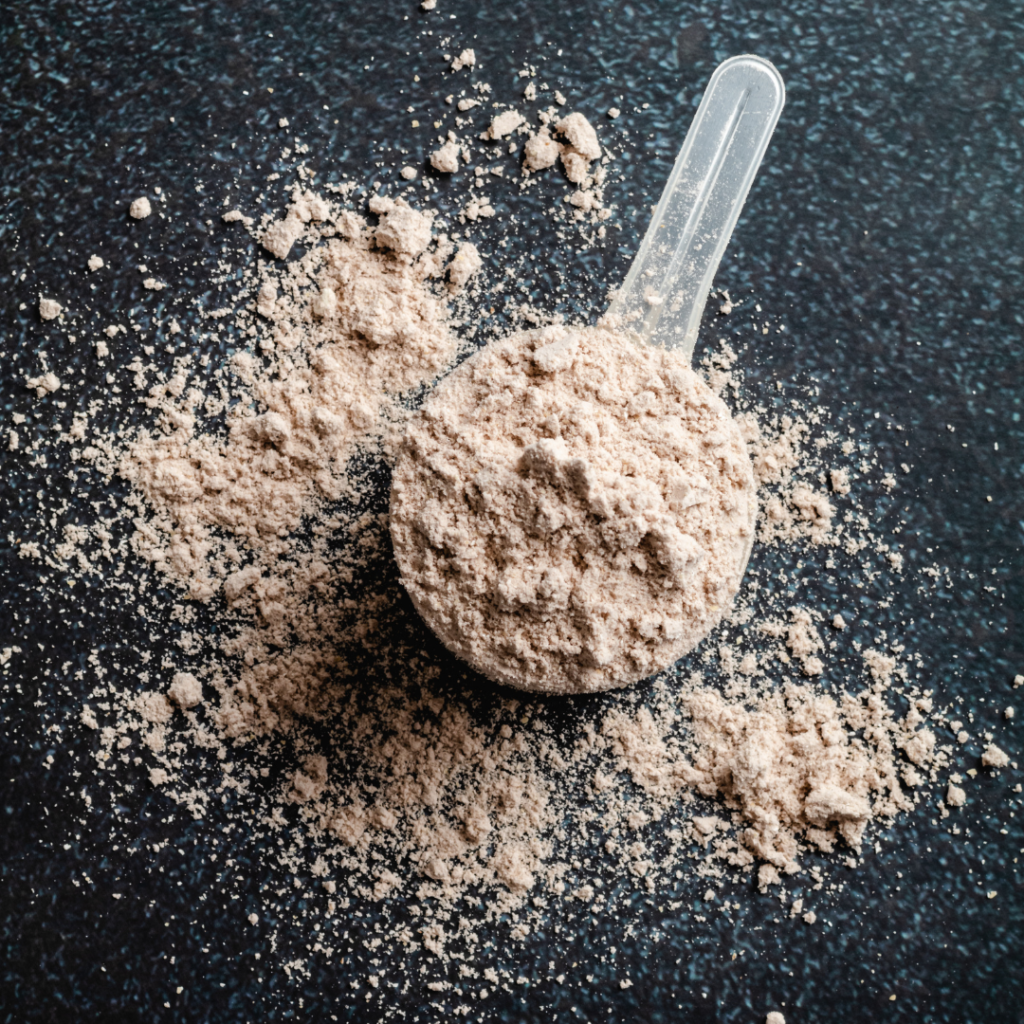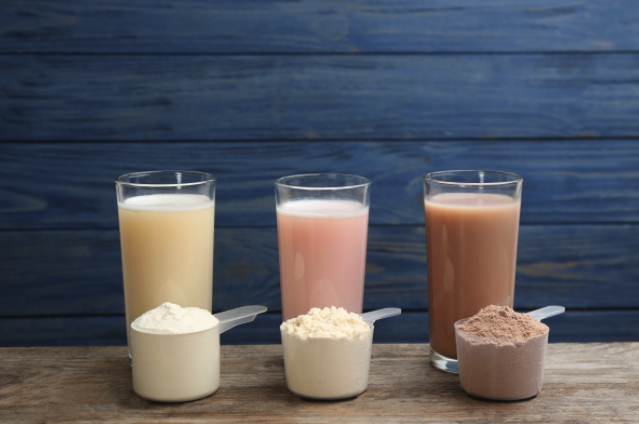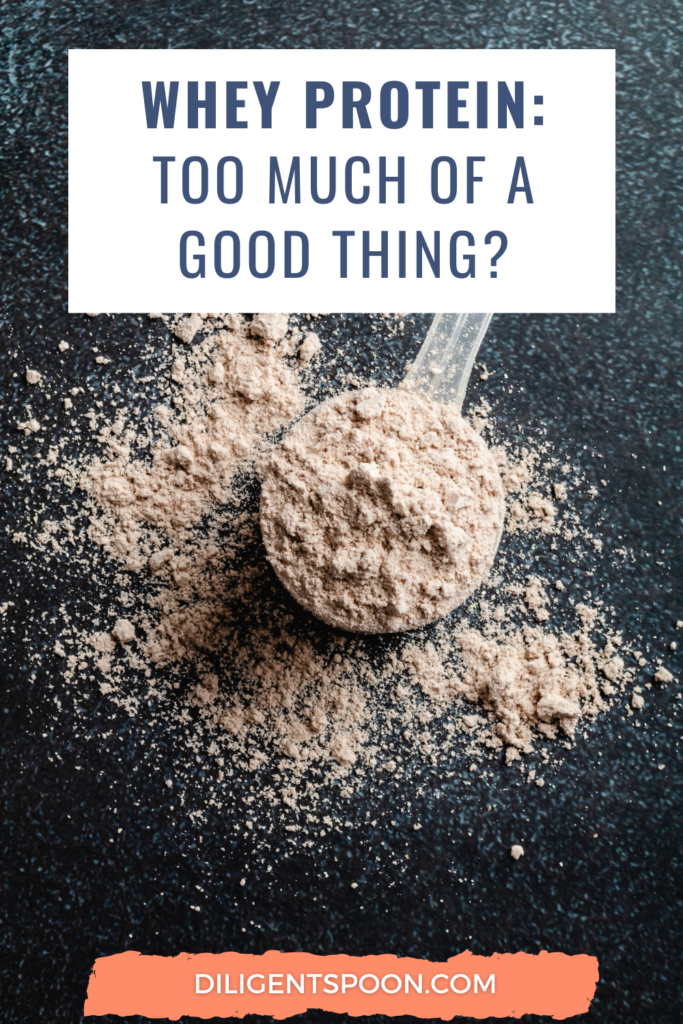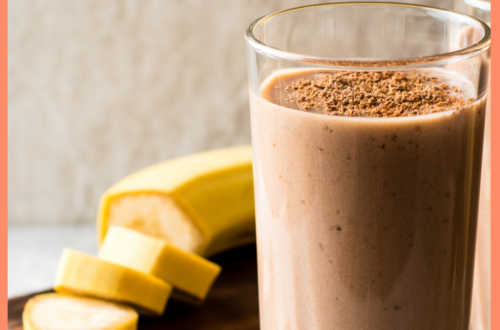Whey Protein Powder: Too Much of a Good Thing?
Can a person eat too much whey protein powder? How much protein supplement is too much?

I was recently asked by a friend if she should be concerned about eating too much whey protein powder. If you’ve recently started adding whey protein to your diet, or even thought about it, you may be curious about this too.
For the record, I add about one scoop of whey protein powder to my diet nearly every day and have for years. I find that it helps me get high-quality, complete protein when food options like meat, fresh dairy, etc. are not available or convenient.
By the end of this post, you will have the information you need to decide how much, if any, whey protein is right for you.
Is it possible to eat too much whey protein powder?
In order to answer this question, you’ll want to know what whey protein is, how and why it works in a balanced diet, and if you need or want it.
Just for clarity, “whey” and “whey protein” are used interchangeably.
Question 1: What is whey protein?
- Whey is a dairy protein from cow’s milk. (The other milk-based protein is casein.)
- Whey is the protein contained in the watery portion of milk – called whey – that separates from the curds when making cheese. As you might have guessed, casein is found in the curds.
- A complete protein, whey contains all the essential amino acids (EAAs) needed for muscle growth and repair.
- Whey protein supplements generally come in powder form, flavored or unflavored.

Question 2: Why do people eat whey protein supplements?
- Most people take whey protein supplements to improve athletic performance and increase strength. Research has shown that athletes taking whey protein build muscle, run, and recover faster than those who do not.
- Whey has a lot of three specific EAAs, the branched-chain amino acids, or BCAAs (leucine, isoleucine, and valine). These BCAAs are important to jumpstart the muscle building process.
- Whey is quickly absorbed by your body, due to its unique amino acid profile. So, people consider it an effective supplement to take just before or after a workout.
- When food sources of protein are hard to get or not well tolerated (for example, people with decreased appetite), whey can help you meet your protein needs. Most whey supplement powders have 20–25 grams of protein per serving/scoop. This is equivalent to the protein in 3-4 ounces of meat, fish or poultry; or 3 glasses of dairy milk.
- Personally, I also eat whey protein because I like the flavor (vanilla ice cream – yummy). I’ll add a ½ scoop to a smoothie or my plain yogurt oatmeal to boost protein and delicious food intake.
- Bonus: Research has indicated that whey supplements can decrease eczema and psoriasis when taken daily for 8 weeks.
Question 3: Is there any reason I shouldn’t eat whey protein?
- Whey supplements are generally safe to eat for most children and adults.
- Keep in mind that whey comes from cow’s milk, so avoid whey if you have a milk allergy (or at least check with your allergist first).
- Likewise, if you’re vegan, you will probably not eat whey because it is from cow’s milk. If you’re a vegan and interested in protein powders, check out Orgain‘s line of vegan protein products.
- Check the labels for any ingredients you don’t want in your diet. Whey protein supplements might contain sweeteners (my powder is sweetened with sucralose, or Splenda), stimulants like caffeine, or other supplements. Note that most are gluten-free, but always check the label for “Gluten-Free” if you are intolerant.
Question 4: Can I eat too much whey protein?
- Again, whey protein is extremely safe to eat for most adults. It’s quite difficult – or simply unappealing – to eat too much!
- Protein requirements vary widely from person to person. If you eat more protein than your body needs, it will just get rid of it (in your pee, mostly).
- Researchers have studied doses of up to 4 servings (or 80 – 90 grams of whey protein) per day in extremely ill hospital patients with positive results. So, a healthy person can feel safe consuming various amounts of whey protein a day.
- However … Use common sense. If you find yourself replacing whole food proteins – meat, fish, poultry, eggs, dairy, beans, legumes, etc – with protein powder a few times per day, it’s time to reassess.
Whole food sources of protein are always better than supplements because food contains other vitamins, minerals, fiber, and antioxidants that are not in a supplement/powder.

- Extremely high intake – think 10 scoops per day (200 – 250 grams of whey protein) – may cause nausea, bloating, cramps, etc. Kind of like eating too much of anything!
Summary
Whey protein comes from cow’s milk and is usually sold in powder form as a dietary supplement. Many people take whey protein supplements to increase athletic performance, recover faster, and add protein to their diets. Unless you have a milk protein allergy, whey is likely safe for you. It’s very difficult to eat so much whey protein that it’s bad for your health. However, whole food protein sources are more nutritious than supplements. If you can, get most of your protein from whole foods and supplement with, ahem, supplements.
To recap, here’s the questions we answered:
- What is whey protein?
- Why do people eat whey protein supplements?
- Is there any reason I shouldn’t eat whey protein?
- Can I eat too much whey protein?
Conclusion
Whey protein is likely safe for you and can be a good way to add protein to your diet, especially if you don’t always have access to protein-rich foods. Many people find it a convenient way to help build muscle and a tasty way to get extra protein.
Did you find this information helpful? I hope so! Please leave any comments or questions below, or share on social media.
Other Helpful Recipes and Resources:
Best Breakfast For Sustained Energy
How to Make Better and Cheaper Protein Bars
Fall in Love With Pumpkin Breakfast Bowls






